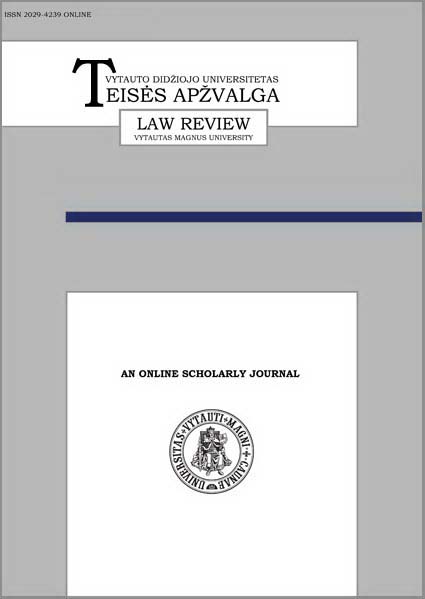Nusikalstamu būdu gauto turto legalizavimas: tarptautiniai standartai, finansiniai tyrimai ir teismų praktika
Legalisation of Property Acquired in a Criminal Way: International Standarts, Financial Investigations and Case-law
Author(s): Aurelijus GutauskasSubject(s): Criminal Law, Security and defense
Published by: Vytauto Didžiojo Universitetas
Keywords: Money laundering; Terrorism; Financial investigation; The qualification of crimes;
Summary/Abstract: Money laundering – is a complicate process, the primary aim of which is provision of visually legitimate origin to the property acquired in criminal manner or suppression of property origin. Primary aim of any money laundering operation is dual: first, it is strived to conceal the crimes, from which the income comes, i.e. predicate crimes, and when it is succeeded to do that, criminals strive to ensure that it would be possible to use this income at their own discretion. Criminal responsibility for legalization of money or property acquired in criminal manner, or otherwise called money laundering, in Lithuania is stipulated by an article 216. In this article, the author analyses the features of money laundering contents; the problems that arise upon establishment or evaluation of one or the other money laundering features are analysed. In order to unfold and explain thoroughly the features of money laundering, the article also examines international and European legal acts, by which the states undertake to criminalize money laundering, stipulate strict prevention measures of money laundering, also other international instruments intended to fight money laundering. Eventually, the author seeks to establish and evaluate whether the features of money laundering contents consolidated in legal acts of the Republic of Lithuania correspond to the compulsory provisions of international legal acts, especially of the European Union. Countries (and Lithuania too) should identify, assess and understand the money laundering and terrorist financing risks for the country, and should take action, including designating an authority or mechanism to coordinate actions to assess risks, and apply resources, aimed at ensuring the risks are mitigated effectively. There are relatively few criminal cases in Lithuanian case law for the legalization of property acquired in a criminal way. The most difficult problem to prove this crime - is to prove the criminal origin of money.
Journal: Teisės apžvalga
- Issue Year: 2019
- Issue No: 2 (20)
- Page Range: 133-151
- Page Count: 19
- Language: Lithuanian

